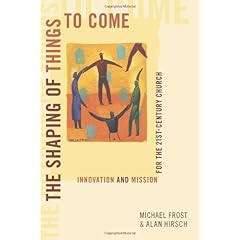Rapid Evangelism
You have 3 months to build a relationship with a "not-yet-Christian". In that time you must live, breath and exude the gospel in a secular setting (proximity space????), and by the end of that time the person will hopefully be closer to Christ (if not completely in the kingdom) than they were at the start. How would you go about it?
This is what I face everyday in my mission-field, and it is a huge struggle for me. While there is plenty of opportunity for relationship building and development I am not sure how to concentrate what otherwise can take years into a 3 month period (according to Hirch and Frost in the book I mentioned in my last post on average it takes a person 4 years to go from no interest or ambivilance to the gospel to becoming a believer).
There are always times when our window of opportunity is going to be narrow. A stranger on a bus or in a resturant (my wife had a wierd encounter in Maccas yesterday - I might talk about it later), a person with a terminal illness. How do we present the gospel to them incarnationally when our time frame is so incredibly short?
An old mate of mine, Dominic Steele from Christians in the Media, uses the "two ways to live" approach in his Introducing God postmodern evangelism course. He sees this as the basis for all gospel communication - and I agree. But I wonder how effective this kind of formulaic approach really is for rapid evangelism - for the kind of evangelism that can only take place in a moment or within the confines of a one off conversation with a person we may never meaningfully engage with again?
More questions! Sorry.












